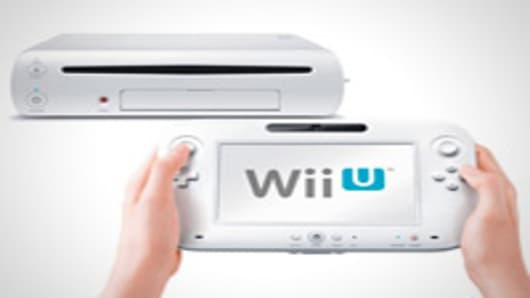GameStop has sold out of its pre-order allotment of the higher-priced Deluxe Wii U, though the $299 Basic version is still in stock.
Even Wal-Mart hasn't been able to keep up with demand. Both SKUs are sold out on a standalone basis—though it is still offering a store bundle (which includes a Wii U game and a Wii remote for an extra $50).
At Amazon, the situation is much murkier. The company is not offering Wii U pre-orders – and customers who sign up to be notified about availability have received a note reading "Unfortunately the Wii U console is not available at Amazon.com at this time but please check back in the future, as availability may change." (Read More: Can Nintendo Get a Seat in the Digital Living Room? )
Third-party retail partners of Amazon, though, are already offering the Wii U at a substantial markup – with prices ranging from $450 to $700.
While the demand might seem to signal that the Wii U is poised to become a cultural touchstone, like the Wii was, analysts note it is likely more indicative of Nintendo offering limited pre-order supplies to stores – in part to help generate buzz for a system that, to date, really hasn't managed to get people talking.
"Nintendo tends to manage the distribution channel to generate some sort of perception that its [system] is in demand," says Colin Sebastian of R.W. Baird. "I think seeing these sellouts on some of the websites is not a negative indication. It's either neutral or slightly positive, but it's not conclusive."
Because no one really knows how many of a retailer's allocated stock are put up for pre-order, he adds, it's not always the best litmus test of future success. Wedbush Securities analyst Michael Pachter estimates there are only between 300,000 and 400,000 Wii U consoles currently being offered for pre-order. (The system, of course, will also be available physically in stores on Nov. 18.)
Part of the reason for that small number, he says, is manufacturing on the system may not have begun yet – which could make the Wii U legitimately supply constrained this holiday. (The company was frequently accused at the height of the Wii's popularity of keeping the supply line tight to create the impression of high demand.)
"We know no one has leaked any pictures of the Wii U supply line," he says. "Those always leak. Someone always sneaks a camera into the facility. The fact that we haven't seen pictures means manufacturing hasn't started as of this week. So, if they're starting manufacturing in late September, the most they can commit to is 1.5 million units per month."
Still, all analysts agree that the Wii U is likely to be a major hit this holiday season – and will likely be one of the harder items for shoppers to obtain. That's a dual-edged sword for the company. (Read More: Nintendo’s New Wii U Tackles TV)
Scarcity tends to boost demand – especially during the holiday sales period. But the Wii U faces several competitive challenges the Wii did not – such as Amazon's Kindle Fire, a recently redesigned PlayStation 3, and Apple's iPhone or iPad. ("I shudder to think what will happen when the iPad mini comes out," says Pachter.)
"What's most important for Nintendo is what happens at launch," says Sebastian. "You want a combination of as many units as possible, that are also perceived to be in short supply, but you don't want to under supply the market so people go out and by something else."
email: tech@cnbc.com


